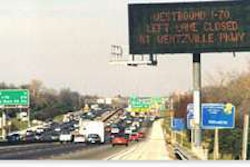The U.S. House of Representative approved the Senate’s Christmas Eve-passed version of health care and insurance reform legislation by a vote of 219-212, with 34 Democrats joining Republicans in voting against the bill. U.S. President Obama was expected to sign the legislation Tuesday, March 23.
The House also voted in favor of several changes to the Senate bill (220-211) that faces Senate action in reconciliation this week.
“Immediate Improvements” to the health care system enabled by the legislation, include:
- Small businesses are incentivized to provide employer-based insurance with tax credits on up to 50 percent of premium costs to employees.
Individuals who have been excluded from most affordable insurance plans due to pre-existing health conditions will now be able to join a new, temporary, national high-risk insurance health plan. In 2014, when new health-insurance exchanges open up, this plan will be eliminated. - Elimination of insurance companies’ ability to end your coverage except for cases of policy fraud or intentional misrepresentation.
- Prohibition of insurers’ placing limits on the total amount of money you can receive in insurance benefits, and the addition of new restrictions on insurers’ setting any annual policy caps.
- Prohibition of insurers’ excluding coverage for children due to pre-existing conditions. Children will be eligible to remain on their parents’ policy up to age 26.
- Seniors who fall into the coverage gap in the Medicare Part D prescription drug plan will get $250 to help pay prescription bills.
The mandate for individuals to have health insurance on which the bill’s projected budget deficit savings ($143 billion over 10 years) rests will not go into effect until 2014, at which time the majority of the structural changes to the health insurance system also take effect.
A fine will be imposed for those not complying with the mandate, beginning in 2014. If the House’s modifications to the bill are approved in the Senate, in 2014 those without insurance would face a $95 fine, or 1 percent of income, whichever is greater. In 2015, the fine would move up to $325, or 2 percent of income; in 2016, $695, or 2.5 percent of income. Hardship exemptions for the poorest of Americans would apply, however, and government subsidies for private insurance purchases will be available to individuals and families if they earn up to four times the federal poverty limit. For an individual that is about $44,000 annually, or $88,000 for a family of four.

Other structural changes include new tax credits for families to help offset premium expenses and the establishment of health insurance exchanges run by the states or nonprofit entities within the states. Under these exchanges, individuals, the self-employed and small businesses will be able to pool their risk to buy into collective plans to reduce overall costs. These may be particularly good options for small fleets and owner-operators who do not have their own insurance.
Also in 2014, the bill expands Medicaid eligibility to a cutoff point of 133 percent of the poverty line for those not eligible for Medicare. Cutoffs are $16,572 for an individual, and $33,729 for a family of four.










